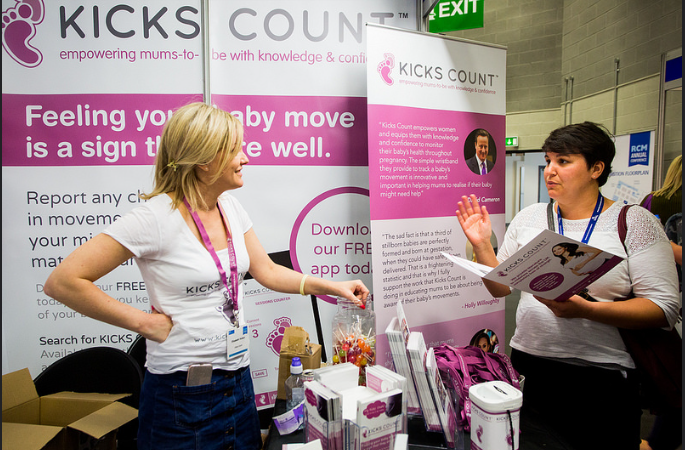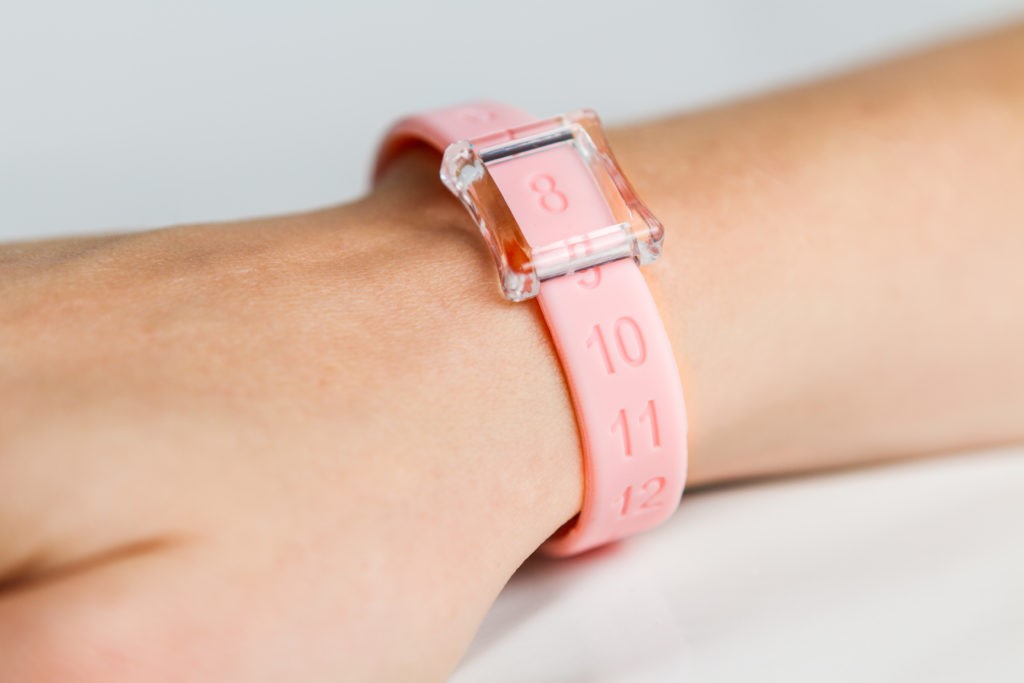Kicks Count is the UK’s leading baby movement awareness campaign. In a nutshell, they spread the word about the importance of baby’s movements during pregnancy in order to prevent stillbirth. They raise awareness in numerous ways, including attending exhibitions, producing literature and harnessing national and social media. They also have a Rainbow Project, which supports families who are pregnant following a previous stillbirth. Lisa Newhouse is the General Manager, she ensures that it all runs effectively and is focused on managing their busy social media channels.
Danni recently caught up with Lisa to help bring the message to our Mummy Social audience by spreading awareness of the Kicks Count campaign.
Hi Lisa, thanks for taking the time to chat with me. Please, can you give us some facts and figures regarding stillbirths and neonatal deaths in the UK?
Though it isn’t common, stillbirth and neonatal death happen more than most people would expect. In 2017, the latest released figures, 2,873 babies were stillborn – around 9 babies every day. Though that was a decrease of 7.7% from 2016 and incredible progress, there are so many more babies to save.

It may sound like an obvious question, but can you please explain why baby movement is so important in pregnancy?
It’s an important sign that a baby is well. Around 50% of mothers who had a stillbirth noticed their baby slowed their movements beforehand. If a baby is getting less nutrients or oxygen, they often move less to conserve energy. Most of the time, a baby is found to be absolutely fine, but it’s vital that mums recognise and report the potential warning sign.

What is the best way to monitor your baby’s movements? Do babies establish a pattern with regards to movement? How often should you feel the baby move?
The best way to monitor your baby’s movements is by getting to know their individual pattern. Most mums find that a pattern starts developing somewhere between 24 and 28 weeks pregnant, it is different for everyone. It’s key to remember that there is no set amount of movement that all mums should feel, all babies are unique. Points of reference are really helpful – does your baby move more in the morning? Do they have a party as you get comfortable in bed? Do they get excited when you eat? Make a mental note, it helps you get to know your baby. We have an award-winning wristband that mums can use to track movement episodes, plus a free to download app too.
What advice would you give if someone believes they are experiencing reduced baby movement? What if this reoccurs again and again?
Not delaying speaking to their maternity unit is one of the most important things. Mums should contact their midwife or maternity unit straight away, they are staffed 24 hours a day, 7 days a week. When my daughter was moving less, I remember how hard it was to make that call. I was worried about being a nuisance – midwives are incredibly busy and I spent a few minutes talking myself out of it before picking up the phone. I don’t regret making that call now. Even though she was fine, it was the right thing to do. Kicks Count actively encourages people to be confident to phone and to trust their gut feeling. If your child was lethargic and hardly moving, you could call an ambulance or doctor; this is no different. If it happens again, mums should always call again, no matter how many times it happens. Even if everything was normal last time, your Maternity Unit will want to hear from you.

What is likely to happen when you report reduced movement? What is the procedure if you go into the hospital to be monitored?
This depends on how far along you are in your pregnancy. If you are less than 24 weeks pregnant, a midwife will check your baby’s heartbeat with a doppler. If they have any concerns, they will arrange for a scan or for you to see a specialist. It’s worth mentioning that most women first become aware of their baby’s movements somewhere between 16-24 weeks of pregnancy and it isn’t unusual for movement to be erratic prior to 24 weeks. If you’re between 24 and 28 weeks pregnant they baby will again be checked with a doppler. They will also give mum a full check-up, including checking the size of the baby and checking blood pressure. If the baby is smaller than expected, a growth scan may be arranged. Finally, mums over 28 weeks will be placed on a CTG monitor and the baby’s heart rate will be monitored.
Is it true that babies DO NOT move less towards the end of the pregnancy? Why do you think people believe that they do not move as much?
Yes, that’s true, babies don’t move less towards the end of pregnancy. The type of movement can certainly change, more stretching type movements than big thuds, but the regularity should stay the same. It’s a really common myth, something that’s been said to pregnant women over many years, so it is pretty ingrained in people’s thoughts.

Are there things you can try at home when you think your baby’s movements are reduced? (before phoning).
It’s not recommended that you put off calling your maternity unit or prompt the baby to move – they should be moving without being prompted! Some hospitals do ask mums to sit for a while and focus on movement, perhaps have a cold drink, but if you are really sure that something has changed, it’s best not to wait.
For more information please visit www.kickscount.org.uk
Interview with Danni, Mummy Social Team